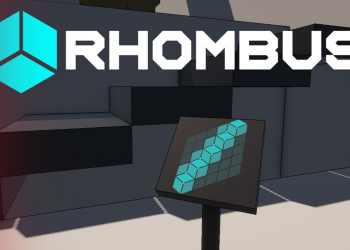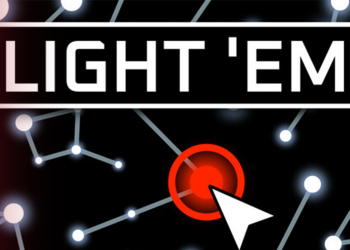For more than a decade, Yuka Kitamura’s compositions have thrilled gamers around the world. From Dark Souls III to Bloodborne, Sekiro and Elden Ring, her music has left its mark on the history of video games, transforming every battle into a memorable experience and every moment of silence into a dramatic pause. In 2023, the composer left FromSoftware to embark on a solo career, sparking both curiosity and excitement about her future projects. We already had the opportunity to write an article in our webzine about her compositions and the unique mark they have left on the gaming landscape. Being able to continue this reflection through a real exchange with her is therefore a particularly precious moment, and a great honor.
We had the privilege of speaking with Yuka Kitamura, a key figure in modern video game music. Here is our conversation, conducted by our columnist François-Xavier. Enjoy, and thank you all for your fidelity and your support!

François-Xavier (PSI) : Hello Yuka Kitamura ! Thank you for agreeing to do this interview woth us. Many people know you as the composer of great FromSoftware games. Can you tell us more about your training and your educational background, and about the work you did before FromSoftware ?
Yuka Kitamura : FromSoftware was my very first job after graduating from music school. At the time, I wasn’t sure if my music would resonate with anyone, so I focused on gaining experience — composing for Japanese indie games for free and sharing my music on social media. Looking back, I think that period was all about exploring possibilities in my own way, even if I was still finding my footing.
FX (PSI) : What are your musical influences ? Could you tell us about any particular composers and musicians that inspired you to become a composer yourself ?
Yuka Kitamura : I was greatly inspired by artists like Karl Jenkins (Adiemus project) and the accordionist Coba— music that was often categorized as “New Age” or “easy listening” at the time. Their unique use of sounds and atmosphere left a deep impression on me. As for game music, The Legend of Zelda and Final Fantasy (especially Crystal Chronicles) had a major influence. They opened the door to my fascination with ethnic and folkloric music.
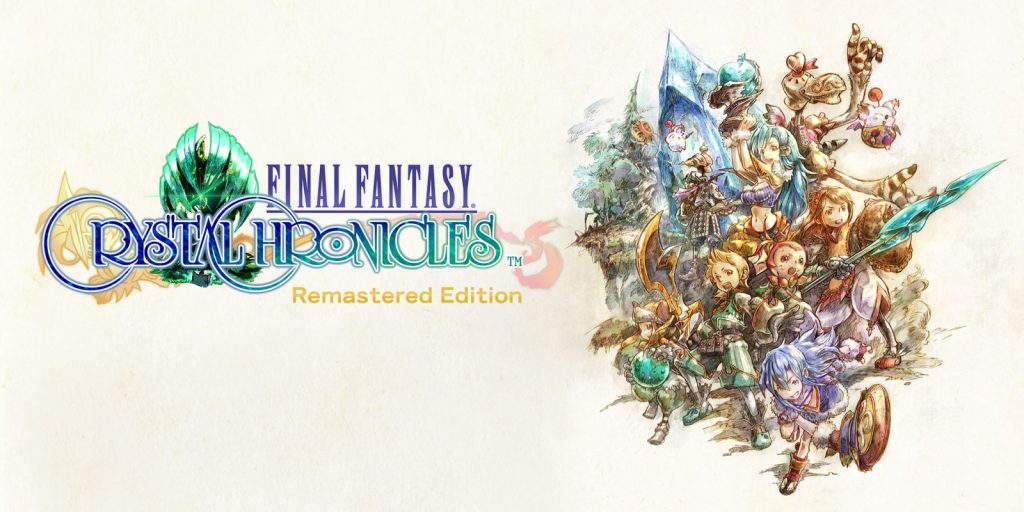

FX (PSI) : Since joining FromSoftware, you have been responsible for composing much of the background music for the exploration areas. How do you find inspiration to convey the atmosphere of a given location ? Does FromSoftware provide you with enough assets to work with on these particular compositions ?
Yuka Kitamura : Whether it’s for map areas or boss battles, most of my musical ideas come from visuals. These are often “concept art” used to convey the atmosphere and setting of the game world — but they aren’t always original illustrations. Sometimes they’re photos of real-world landscapes and locations.
When I look at those visuals, I try to imagine what the player might feel in that space — drawing from my own life experiences to recall the sounds, smells, and atmosphere of similar places. Those impressions often become the emotional starting point for my music.
(Note from Yuka Kitamura: Concept art is widely used in general game development. This response does not refer to any specific company or confidential information.)
FX (PSI) : Does the topography of the areas the players visit (such as heights, underground passages or ruins) directly influence the musical structure of your compositions ?
Yuka Kitamura : In my compositions, I often think of the music as a way of “describing” the landscape. I try to express the different impressions that a place might evoke in people through sound.
For example, in more confined or claustrophobic areas, I avoid using voicings that feel too expansive. I may also adjust the number of instruments, the type of reverb, or leave intentional gaps between notes to convey a sense of space or desolation.
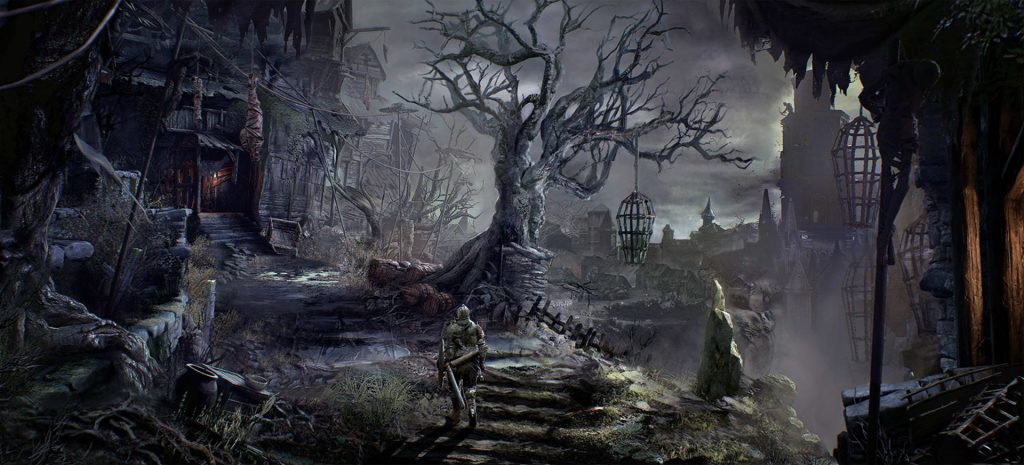
FX (PSI) : How did you strike a balance in your compositions so that each sound contributes to immersion, while maintaining a unique signature for each game you worked on ?
Yuka Kitamura : To be honest, I didn’t deliberately try to balance immersion and uniqueness in my compositions. I simply tried to make the music blend naturally with each game’s world.
Even though the games may share a similar dark fantasy atmosphere, each title had a clear and distinct direction from its director. I focused on reflecting those differences through the music. Looking back, I think that may be what gave each game its own musical identity.
Your question made me realize —“Ah, I guess that came through more than I thought!” (laughs).
FX (PSI) : FromSoftware games share common themes and a dark fantasy universe, with a common thread of death and rebirth. How do you manage to give each game its own musical color and tone ?
Yuka Kitamura : This overlaps a bit with the previous question, but I think the different musical tones across each title may have come from how I approached emotional expression.
Even within the same “dark” atmosphere, the emotions behind it — whether it’s anger, sorrow, or guilt — can influence the choice of instruments and tone colors. Over time, I feel like I developed a kind of instinct for adjusting those “emotional ratios.” Ironically, writing music for so many dark fantasy worlds helped me build that sensitivity! (laughs).

FX (PSI) : How do you make the music accompany the player’s frustration while also encouraging them in their efforts ?
Yuka Kitamura : To be honest, I’m also someone who struggles to defeat bosses in games, so I genuinely empathize with the frustration and difficulty players experience. That sense of “I understand” has always been at the core of my music.
During the creative process, I often found myself facing challenges as well — going through revisions or feeling stuck creatively. In many ways, I was also in a position of persistence and trial. I think that natural sense of resonance with the player’s emotional journey may have found its way into the music.
FX (PSI) : What is the secret in finding a balance between silence and tension when composing boss music ?
Yuka Kitamura : In my composition style, I like to place the most important melodies or harmonic progressions after moments of tension. That structure naturally creates a contrast, allowing “stillness” and “movement” to enhance each other.
I also pay attention to how the melodic lines are passed between instruments — like a relay. One instrument may begin a phrase, and another picks it up and continues the flow. I value that sense of musical dialogue and interplay.
FX (PSI) : One of our favourite compositions in your body of work is Abyss Watchers, in Dark Souls 3. Could you tell us more about the harmony you found to create that feeling of anxiety mixed with a deep sense of nobility we felt when hearing the music for the first time ?
Yuka Kitamura : In terms of balancing tension and release, this piece is largely built on a single chord— F — which remains constant throughout most of the track. By avoiding harmonic movement, I aimed to express not just tension, but a kind of resolve or determination through the sound. The main melody is carried by an alto solo vocal, which I feel added a sense of solitude or dignity. When I composed this piece, I remember imagining it as a kind of farewell song — a tribute to a warrior heading into battle.
FX (PSI) : Bosses in FromSoftware games often have two or three phases of gameplay. How does one manage these transitions ? More specifically, do you follow the bosses’ patterns as you compose their themes ? What kind of information did FromSoftware use to give you about the bosses when you worked on their themes ?
Yuka Kitamura : When a boss changes phases, the music very rarely “calms down,” so I generally composed the first phase with the assumption that the intensity would increase from there.
I always try to create music that follows the player’s experience closely. During composition, I would often watch the gameplay in debug mode — partly because I couldn’t beat the boss myself! Experiencing the game directly like that helped me time the music in a way that felt more authentic and emotionally synced with the player.
FX (PSI) : Hidetaka Miyazaki’s games are well known for their cryptic scenarios. What is the role of a soundtrack in telling the stories ? Did you view your compositions as a way to assist the player’s understanding of the story he/she was playing ?
Yuka Kitamura : During the composition process, I didn’t always have access to the full story, but especially with boss themes, I often focused on expressing the character’s atmosphere or background through music.
Rather than telling the story directly, I aimed to help players feel something emotionally.
In that sense, the music may have naturally played a role in storytelling.
FX (PSI) : In Sekiro: Shadows Die Twice, we experience a very particular range of emotions thanks to the use of traditional Asian instruments (such as the shakuhachi, koto, and shamisen) as well as modern orchestral elements. What was the balance you were looking for with this game and its incredible tension and speed, which are much more pronounced than in the Dark Souls series of Elden Ring ?
Yuka Kitamura : While the use of traditional Japanese instruments may stand out, what was more challenging for me was finding a way to make orchestral instruments sound Japanese.
The typical approach I had used for Western fantasy music didn’t quite fit the world of SEKIRO, so I spent a lot of time studying and experimenting. For example, I avoided complex chord progressions, which tend to evoke a distinctly Western feeling, and reworked the voicing of orchestral instruments to create a different texture.
The sense of tension was also fundamentally different. In previous dark fantasy titles, tension often came from unseen, mysterious forces. But in SEKIRO, the tension is more immediate — facing a powerful enemy head on. That shift naturally brought about a different kind of music.
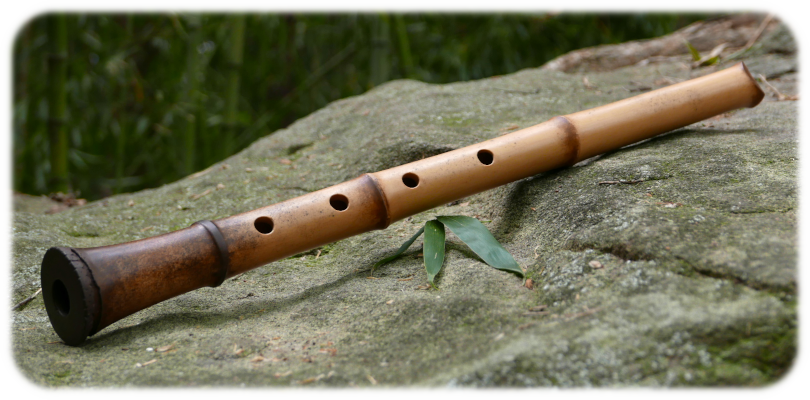
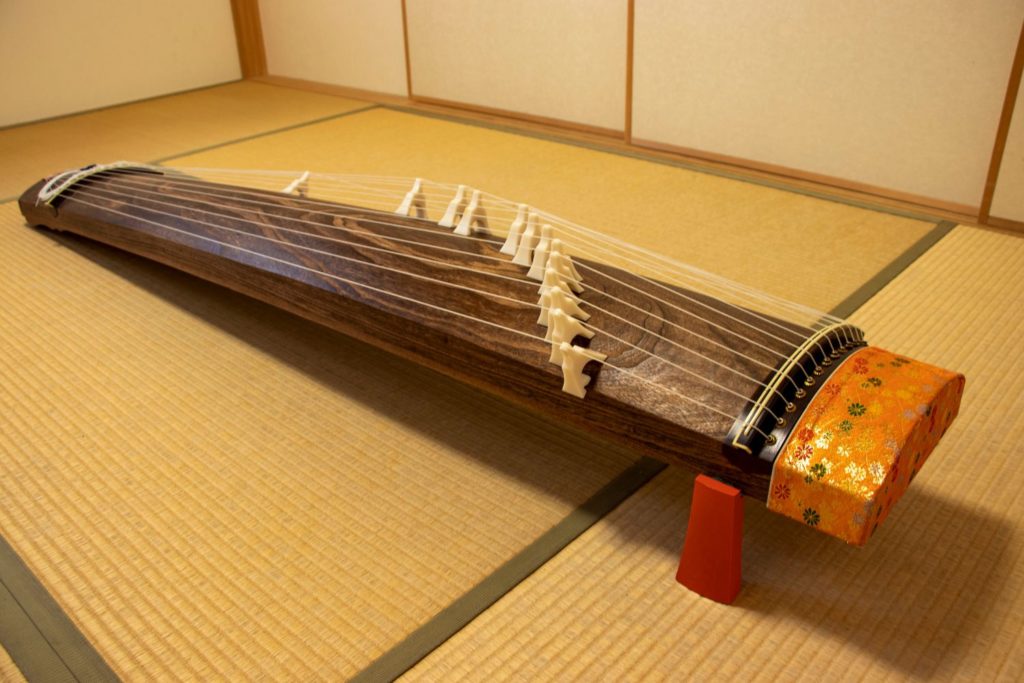
FX (PSI) : About Elden Ring, was the choice of making an open-world game a challenge in the conception of the soundtrack ? In such games, much more background music is needed and because it is nearly impossible to predict the order in which the player is going to play the game, it seems harder to create a soundtrack that reacts accordingly in terms of tension. How did you overcome this challenge ? We particularly loved « Regal Ancestor Spirit » and would love to also have your insights on how you composed this particular song.
Yuka Kitamura : From my impression, Elden Ring presented a distinct atmosphere for each area, and I tried to shape the music in a way that matched the mood of each environment. Because of the open-world format, I focused on making the music feel like a natural part of the space, rather than something overly dramatic.
« Regal Ancestor Spirit » was a particularly challenging piece for me. I wanted to express a Celtic-inspired atmosphere, but I struggled to reconcile that sound with what I felt to be the tone of FromSoftware’s world. It took a lot of trial and error to bring the two together in a way that felt right.
FX (PSI) : Could you tell us about one soundtrack or one song you are particularly proud of in your body of work, and why ?
Yuka Kitamura : One track that left a deep impression on me was the theme for the Divine Dragon in SEKIRO. Writing music for a “dragon” — or rather, a ryu, with all the cultural weight and spiritual nuance that implies — was a new challenge, even within FromSoftware’s world. It felt like stepping into a different realm of expression, beyond the typical dark fantasy tone.
In Elden Ring, the theme I personally feel most attached to is Rennala’s. It explores a sound that feels like a “melting dreamlike haze,” where beauty and madness coexist.
I was able to express a very delicate balance in that piece, and it resonated deeply with my own sensibilities.
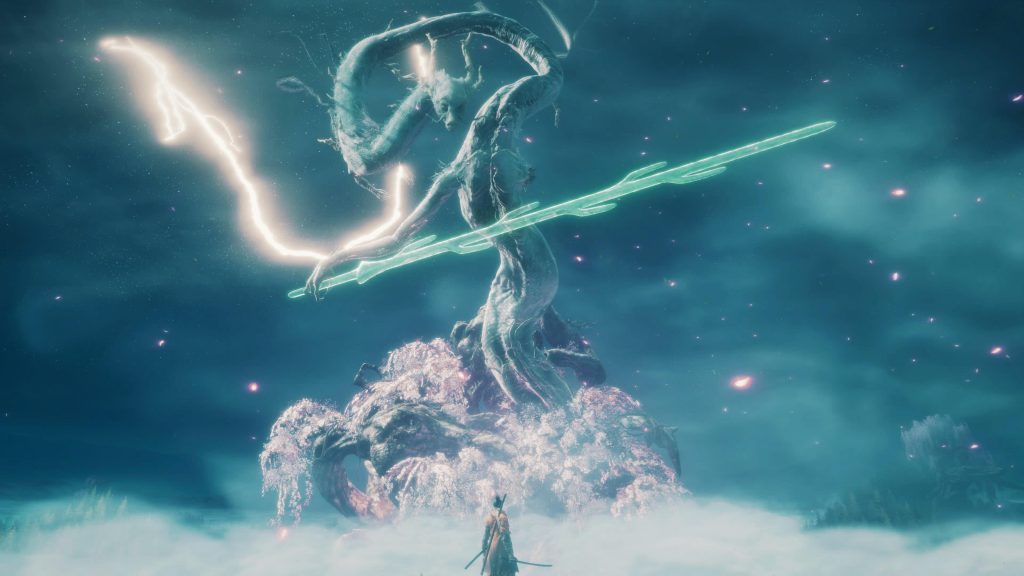
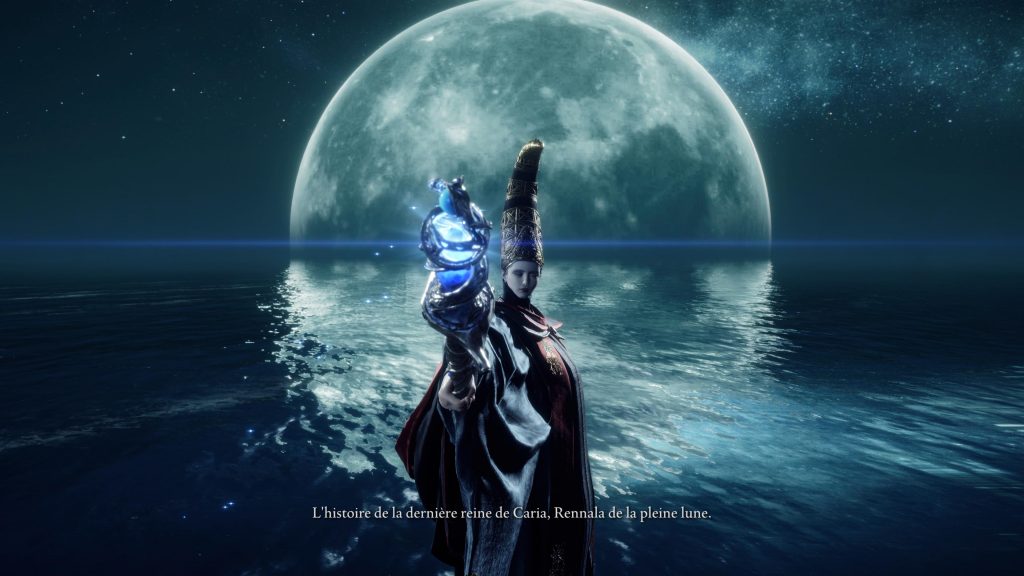
FX (PSI) : In recent years, FromSoftware has ushered in a new type of games : Soulslikes. Did you ever look at or play any of those games and maybe found inspiration in one of them ? It would be interesting to know if the games inspired by FromSoftware inspire you or any FromSoftware employee in return.
Yuka Kitamura : I’ve enjoyed watching Soulslike games through livestreams, and their subtle musical differences often inspire me in unexpected ways. When I was at FromSoftware, new titles in the genre sometimes sparked conversations within the team.
It was exciting to see how developers around the world interpreted the style in their own unique ways.
FX (PSI) : Are you interested in working on interactive or evolutive soundtracks ? Here in France, composer Olivier de Rivière did so on games such as A Plague Tale and South of Midnight. Is it something you would be interested in exploring ?
Yuka Kitamura : I find interactive music deeply fascinating, especially for how it creates a seamless, cinematic sense of immersion. To implement it effectively, the music often needs to be divided into modular parts and carefully synced with gameplay.
This requires close collaboration across departments and a solid understanding of game systems — something I believe is becoming increasingly important for composers working in games.
FX (PSI) : How do you view the future of music in video games, especially in regards to the importance of generative AI in today’s industry ?
Yuka Kitamura : I believe how we choose to integrate AI is key. For me, game music is a way to express subtle emotions that visuals alone can’t convey — something I feel humans are still best at.
That said, if AI can assist with things like seamless transitions in interactive music, it could greatly reduce the composer’s workload. There’s real potential in that kind of collaboration.
FX (PSI) : In 2023, you announced that you were leaving FromSoftware to explore new opportunities. Could you tell us more about the projects you are working on today, and about how your experience on FromSoftware’s games helps you navigate the industry with more confidence ?
Yuka Kitamura : Since becoming independent, I’ve been focusing on music that explores very different worlds from what I created at FromSoftware. Some of my recent projects — still under wraps — blend electronic elements with orchestra, while others take a more folkloric approach.
For example, in Witch Hat Atelier (broadcast date TBD), I’m working on a sound that’s quite different from my previous works.
Thanks to my experience at From, I feel confident building dark fantasy worlds. But that foundation has also given me the freedom to explore entirely new ones. Even in these new directions, I hope listeners can still sense the emotional subtlety that has always been central to my music.

To close this interview, a word from François-Xavier, our columnist responsible for the interview : Thank you so much, Kitamura-san, for your time, your generosity, and above all for your words, which, like your music, resonate with sincerity and depth. This exchange was a real honor, and a precious opportunity to better understand the soul behind these compositions that stay with us long after we’ve put down the controller.
We wish you all the best in this new independent adventure, and we look forward to discovering the next works you will share with the world. Thank you again — for the music, for the emotion, and for this rare moment.

